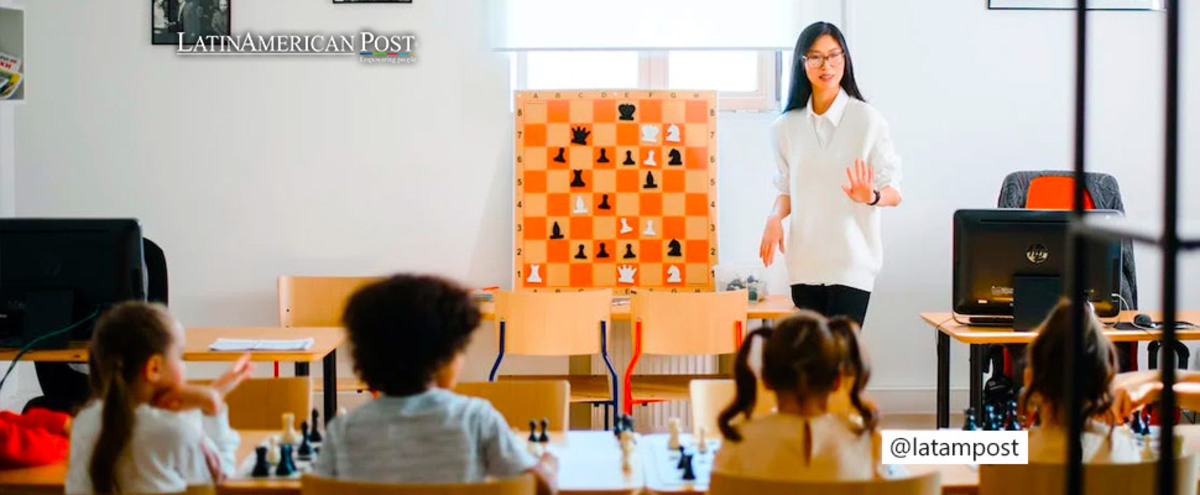7 Essential Skills Of Special Education Teachers
This article explores the seven essential skills that allow special education teachers to be effective in their roles.

Marlene Joseph
Escucha este artículo
Teaching students with special needs is an admirable yet demanding profession. Special education teachers have the vital job of assisting students with disabilities to conquer challenges and thrive. But how do they do that? What skills do they need to excel at their jobs and truly make a difference in their students’ lives?
This article explores the seven essential skills that allow special education teachers to be effective in their roles.
1) Ability to Adapt and Differentiate Instruction
Special education teachers need to be flexible in their teaching methods in order to meet the needs of students with a wide range of learning differences. This means using a variety of teaching strategies and adapting lessons to meet the individual needs of each student.
For example, they might use visuals, gestures, demos, and adapted textbooks to help a dyslexic student. Or let ADHD students do creative, hands-on projects together. A student with autism spectrum disorder may need more structure and routine in their learning environment.
It's super important for special education teachers to take traditional teaching approaches and make them work for every kid. This way, all students can learn and be successful. It also makes learning more fun, interactive, and practical for real life.
To get better at adapting lessons, special education teachers can go to conferences and take online courses. Earning an online MEd in special education also teaches them about personalized instruction and strategies to individualize teaching. These programs typically cover topics such as assessment, intervention, and behavior management.
2) Active Listening and Communication Skills
Special education teachers need to be able to communicate effectively with students. Listening attentively shows students they are cared for and builds trust.
Ways for teachers to actively listen or effectively communicate with students include:
-
Looking into their eyes, nodding along, and paraphrasing back what you heard to make sure they feel heard and understood
-
Asking thoughtful questions and waiting patiently for responses to accommodate different processing speeds
-
Celebrating growth and accomplishments, no matter how small, to boost confidence and self-esteem
Moreover, clear instructions combined with visual supports aid comprehension. But tailoring communication style to each child’s needs, abilities, and preferences is the key. When students know their teacher “gets” them, they feel safe to express themselves. The bonds special educators form through communication empower students to thrive.
3) Problem-Solving Skills
Special education teachers invariably have to deal with unforeseen challenges and problems related to student behaviors, teaching methods, curriculum adjustment, and managing classroom logistics. So, they need to have excellent problem-solving abilities to handle any issue tactfully and quickly.
Sharp analytical and critical thinking abilities are key for successful problem-solving. This involves:
-
Analyzing issues from multiple angles
-
Weighing the pros and cons of potential solutions
-
Thinking creatively about approaches
-
Applying logic to make decisions
-
Reflecting critically on outcomes
Mastering these problem-solving skills enables special education teachers to tackle challenges efficiently, resulting in better learning experiences for their students.
4) Collaboration and Teamwork
Special education teachers seldom work in isolation. They need to collaborate with occupational therapists, speech-language pathologists, school psychologists, administrators, and parents to offer unified support addressing the child's needs. They must also coordinate with classroom teachers to embed accommodations/modifications into the general curriculum.
The ability to work in a team, share insights, and value others' perspectives is critical. It helps develop holistic Individualized Education Programs (IEPs) focused on academic, behavioral, emotional, and physical growth.
5) Organizational Skills
Strong organizational skills are critical for special education teachers to manage their complex responsibilities. Keeping detailed records, tracking student progress, coordinating with teams, and running efficient classrooms require stellar organization.
Organization skills can help special education teachers in the following ways:
-
Maintaining detailed files on each student’s evaluations, IEPs, accommodations, behaviors, and more
-
Scheduling and preparing for IEP meetings, parent conferences, and collaboration with therapists
-
Planning engaging lessons and classroom activities
-
Finding and managing classroom materials, visual aids, assistive devices
-
Keeping classrooms running smoothly despite frequent disruptions
-
Handling substantial paperwork and documentation
6) Technology Skills
Technology unlocks new possibilities for connecting with special learners. With the right tools, teachers can customize instruction to students' unique needs. The benefits of the technology include:
● Augmentative communication apps give a voice to nonverbal students
● Text-to-speech software assists those struggling with reading
● Noise-canceling headphones aid overstimulated students
● Educational games and apps engage different learning styles
And, of course, moderation is key. Balance high-tech activities with interpersonal interaction. With an open mind to new advances, educators can use technology to help each child thrive. The digital world has great potential for reaching and teaching special needs learners.
7) Emotional Intelligence
Managing emotions while handling student frustrations certainly demands great emotional intelligence from special education teachers. To create safe, supportive environments where sensitive students can thrive, it's essential teachers strengthen their abilities in:
● Self-awareness and self-care to manage stress and lead with compassion.
● Understanding each child's unique emotional needs and triggers.
● Forming real connections with special needs students.
● Modeling appropriate behaviors and fostering social-emotional growth.
● Recognizing situations that may cause outbursts and using de-escalation tactics.
● Staying calm, patient, and positive even in tough moments.
Building emotional intelligence allows special education teachers to connect with students, prevent meltdowns, handle frustrations artfully, and help special needs children manage emotions and behaviors. It empowers them to be their best while providing the sensitive assistance their students need to thrive.
Conclusion
Watching your students overcome obstacles and make progress is incredibly rewarding. So, special education teachers must work to develop the seven key skills we've covered. This will equip them with the tools to guide each student toward a hopeful future. When special education teachers stay dedicated to improvement, they can profoundly impact their students' lives. Though the road may be difficult, the destination makes the journey worthwhile.




